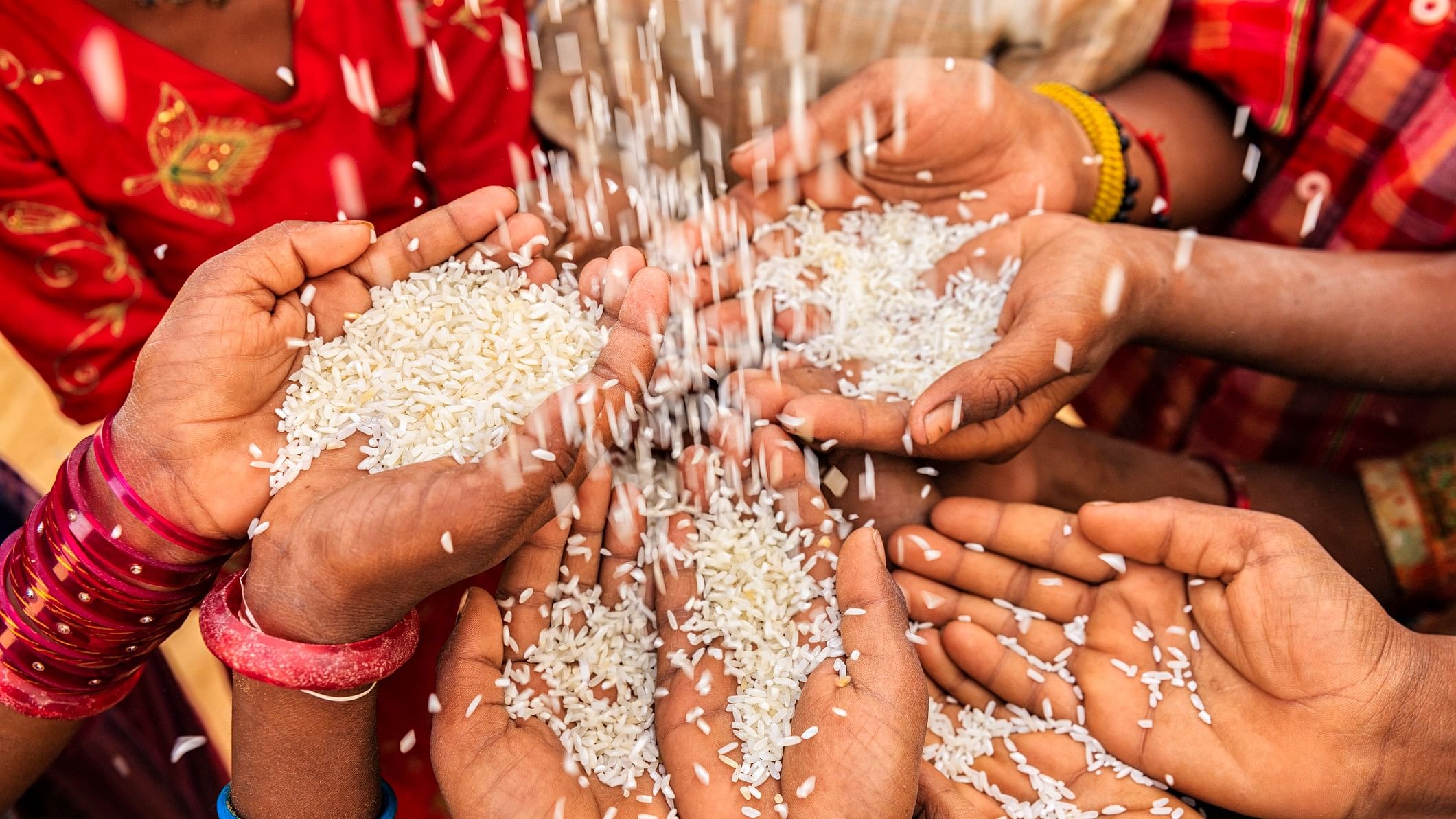
Through appropriate health and nutrition education, Anganwadis enhance women’s capacity to care for their children.
Credit: iStock Photo
On the eve of the Lok Sabha elections, the Congress government in Karnataka has gone to town on how its five guarantee schemes have helped the public. But those at the helm appear to be unaware of the hunger that children in the state’s Anganwadis are facing. Following a scheme launched in 1975, the state now has about 62,500 Anganwadi centres which cater mainly to the poorest of the poor.
The objectives of the centres are to bring down death, morbidity, and malnutrition rates, improve the nutritional and health status of children up to the age of six, and provide for their proper physical, psychological, and emotional development.
Through appropriate health and nutrition education, Anganwadis enhance women’s capacity to care for their children.
The centres found themselves in the midst of a controversy just a few months ago for their inability to provide eggs. They are again in the news for serving unpalatable food that children are refusing to eat. This could lead to disastrous consequences as state government data reveals that thousands of children, especially in the impoverished districts of north Karnataka, suffer from malnutrition.
In January, the Centre introduced a new menu of broken wheat upma or ‘khichdi’ which the students say is not pleasant to the taste. This has resulted in about 75-90% of the food remaining unconsumed. There are over 1.5 million children in Karnataka anganwadis, and food wastage could be very high if a majority of children refuse to eat it.
Vegetables are not added to the khichdi due to budgetary constraints, and in effect, the students are served nothing more than boiled broken wheat in the afternoon. The vegetables included earlier served as an important source of vitamins and minerals.
It is unfortunate that instead of fixing the nutritional gaps in the food provided, the government has shifted to a diet alien to children. In a diverse country like India, where food habits differ from one region to another, the government should keep the local palate in mind.
Women and Child Welfare Minister Laxmi Hebbalkar is busy campaigning for her son, the Congress candidate from Belagavi. She does not seem to have the time to address this pressing problem affecting Karnataka’s little children. She has so far failed to act on repeated complaints about the poor quality of food. Chief Minister Siddaramaiah should intervene and ensure that his dream of a ‘hunger-free Karnataka’ does not remain a mere slogan.